
Dispatches, Peru
Keiko Fujimori, “To Call Me Right-Wing Is a Lie” — An Interview
June 2, 2011 By Paul Alonso
Keiko Fujimori is 35 years old and the daughter of ex-president Alberto Fujimori, jailed and sentenced for human rights violations in 2009. She became Peru’s first lady at 19 and faced the public when, following a series of corruption scandals in 2000, her father attempted to resign from the presidency by fax from Japan. After studying in the United States and marrying an American, Fujimori moved back to Peru in 2005 and became a congresswoman in 2006. She is now the presidential candidate for Fujimorismo, running under the banner “Fuerza 2011” (“Strength 2011”).
This interview was conducted by Paul Alonso and originally published on Nov. 26, 2010 in Spanish on Terra. It has been translated and republished in English by the Latin America News Dispatch.
Interview
How is your political platform different than that of Fujimorismo in the 1990s?
First of all, I would differentiate between the situation and the problems facing Peru in the 1990s and those that our country has today. In the 1990s, we had terrorism, hyperinflation, we were isolated by the international financial community, and we had border problems. All these problems were solved during the government of Alberto Fujimori, including the signing of a peace agreement with Ecuador, which was a historic accomplishment for our country. The Fujimorismo in the nineties was a strong government, not very conciliatory, which enacted sweeping reforms, but also made mistakes. It allowed corruption to infiltrate the government. And with respect to democracy, it wasn’t the best example. Today, now that we have a country on the move thanks to the foundations that were laid in the ‘90s, Fuerza 2011’s objective is to keep on this economic path, but to have stronger social policies. We have to equalize, to invest according to social criteria. We also need a strong anti-corruption policy and we’re going to be very respectful of the rule of law in our democracy. The difference is that we have a different style. I’m more conciliatory, more open to criticism. I’m a lot more tolerant.
Many people think that if you won the presidency, you would pardon your father and it would cause a scandal because the trial was valid and observed internationally. What do you think?
I followed the trial against my father and during the 18 months that it lasted, not one single piece of evidence was presented against him. There was a lot of rumor, hearsay, but at no time did anyone demonstrate that he was a member of Grupo Colina [a paramilitary death squad that was active in Peru from 1990 to 1994] or that he had given orders. For that reason, when they sentenced my father, support for my possible candidacy rose in the polls. Having said that, it’s absolutely false that I want to run for president in order to free Fujimori. I don’t travel all around the country or work with a technical team to free Fujimori. We have projects, proposals, concrete works, we know the reality of this country, we know what we want and where we’re going.
But would you pardon him?
My father’s case is still moving forward. He’s presented a habeas corpus and I think he’ll present another one. And we have taken the decision to wait for the habeas corpus, no matter how many years it takes. It could take two, three years. Hopefully, it will take less. But we are going to wait for the result, which will one day be made in front of the constitutional court. We also have other appeals.
Even if you were president, would you keep waiting?
Yes. We are going to wait it out. That’s the decision we’ve taken.
You’ve been accused of being an accomplice to illegal enrichment and to have studied abroad – along with your brothers – with government money.
First of all, I want to clarify that my father has been investigated on seven occasions and the cases have been closed. He was never prosecuted or sentenced for illegal enrichment or embezzlement of government funds. So, how can there be alleged accomplices if there is no criminal? Second, the crime of illegal enrichment is exclusively applied to public officials. Neither my brothers nor I have ever been public officials [Editor’s Note: the title of “First Lady” is an honorary title]. So investigating us for supposed illicit enrichment is not very appropriate. Third, suppose my father had acted improperly – I graduated in 1997, that crime would have already been exonerated. I participated in all of the investigations, they’ve gone to my house to dig around, they’ve made me confront Montesinos [Editor’s Note: Vladimiro Montesinos was the former head of Peru’s intelligence service, who was sentenced to 20 years in prison for illegal arms deals] face to face. I’ve given all my documentation of expenses and I have not had any problem helping these supposed investigations. What catches my attention is that after so many years, in the month of August, when my candidacy comes to the fore, an investigation of this type begins.
Ok, but you never asked yourself where the money was coming from?
Well, let’s get to the heart of the matter. My parents arrived at the Government Palace with a lot of resources. They had a construction company and that’s recorded, thank God, in the divorce agreement. They had more than $350,000. It’s also recorded there that my grandparents supported my parents and gave them a lot of property – several houses, tractors, property – that they later divided between themselves. Then, in 1994, my father received a $150,000 loan from a friend and that has also been investigated. When my father sold a property in 1997, he repaid the debt. Then, if one adds those $350,000 and the $660,000 from the property that my father sold, that works out to about $1 million. With that, there was more than enough money to pay for my studies, which cost more or less $92,000. On top of that, I knew that my grandparents had helped my parents. That’s why I thanked my grandparents on my graduation day, because I knew that the money that paid for my studies came principally from them.
They say you represent the hard right in these elections. How do you interpret that?
(Laughter.) They’re trying to mark me as a rightwing candidate, but if that were so, I wouldn’t have the support of some of the poorest groups in country. We will maintain an open economic policy that gives benefits to foreign investment, but that doesn’t mean we’re going to be a liberal party. No. Our policies and social programs are very responsible and they will have a direct impact on the poorest sectors. That’s why we have more support than the nationalists among the poorest sectors. To say that Keiko Fujimori is a rightist is a lie.
There’s been a transfer of votes precisely between nationalist candidate Ollanta Humala and you. Many people who voted for him five years ago now say they will vote for you. How are you similar?
(Laughter.) I think that a vote for Ollanta was a vote against the established political parties, against the system, the government, those who forgot about the poor. Today, they would vote for Keiko Fujimori because we demonstrated in the nineties that we’re an efficient government, with the ability to administer capably, that has worked for the poorest sectors. That’s my commitment: to maintain growth and share it with the poorest sectors. I have traveled a lot and I am close to the people.
You have presented little legislation during your time as a congress member, and one could say you’ve spent more time campaigning than legislating. How do you evaluate your work in Congress?
I’ve presented 18 pieces of legislation personally, and about 130 with my coalition. Of those, six are law. Some of the important ones were to lower taxes on non-sporting events, laws against crime and against child pornography, which was awarded by Reflexión Democrática as the best legislation of 2008. But beyond presenting legislation, there’s work to be done in the committee debates. I’ve belonged to different committees in order to learn, including Economy, Women’s Rights, Foreign Trade, Housing. And my main function is representation. I visit with a lot of people and travel a lot to be in contact with people, listen to their grievances, their demands. To be a good congress member doesn’t mean presenting the most laws, but rather improving the quality of those laws.
During your father’s government, the mass media and the press were totally controlled and their editorial line was bought with state money. For you, where is the limit to freedom of expression?
Thank you very much for asking. I have criticized that. I condemn their buying of media outlets’ editorial lines. When I started noticing that there were media outlets that became totally complacent during my father’s government, because there wasn’t evidence until the Vlavideos [Editor’s Note: In 2000, Peruvian television broadcast a video of Vladimiro Montesinos giving a bribe to an opposition congressman. In the following months, more videos were released showing him bribing owners of Peruvian news agencies] came out, I took the personal decision to give interviews to critical and adversarial media. I gave interviews to Beto Ortiz, to Jaime De Althaus, to the newspapers La República and El Comercio, and the magazine Caretas, in the years 1999 and 2000. That will always be my position – total respect for the media. We believe in the self-regulation of the media. I prefer to err on the side of excess of freedom than to proscribe some liberties.
Fujimorismo has a tendency to oppose the human rights movements, while favoring military officials accused of repression.
Supporting the military and the police does not mean opposing human rights. We absolutely respect human rights. But we also recognize and thank the labor that so many in the military and police have done to achieve peace in our country.
If you became president, what would be your position with respect to the imprisoned soldiers accused of human rights violations?
Look, we have voted to annul legislative decree 1097 [Editor’s Note: 1097 is a decree that states criminal charges of human rights violations can only be applied to crimes as of November 2003, which effectively eliminates ongoing and new cases on human rights violations committed between 1980 and 2000], but I was in favor of the spirit of that law. There are judicial processes and investigations that can last 10 or 15 years. That’s excess, it’s not justice. We should look for a way to make the processes shorter.
Why do you support the death penalty?
The Fujimorista coalition submitted legislation when we saw the case of the girl Romina, in which the assassins shot directly at her [Editor’s Note: Romina Cornejo Ramos was a three year-old shot in a vehicle assault in Lima in August 2010]. We presented an initiative to be able to debate the death penalty once again for really serious cases or, for example, rapes committed against minors. I consider that such criminals won’t ever change. We’ve presented this legislation as a preventive measure. In the countries that have the death penalty, they use it above all as a scare tactic.
But it could be met with suspicion. If your father’s government is associated with human rights violations, you don’t think that the death penalty could end up being applied arbitrarily?
I think that in that sense, the courts have to exercise a lot of caution, above all when dealing with such serious punishments. We have submitted this legislation because we think it is appropriate. The criticisms don’t interest us. And that’s what Congress is for. We are only 12 among 120. Everyone else’s opinions will be very important, as well as the debate to apply the necessary guidelines and to avoid committing an act of injustice.
They say that during the ‘90s, in private, you were a critic of Vladimiro Montesinos. Is that true?
Yes, I publicly criticized Vladimiro Montesinos. That caused a lot of discomfort within the cabinet and the government of my father, but I always say what I think. I had many debates with my father. I think his worst political mistake was to keep Montesinos by his side. Regardless, after so many years, my father has taken note of those errors. And my stance will always remain implacable against corruption.
What would your relationship be like, then, with the Intelligence Service?
(Laughter.) Look, today I worry when I see marches to liberate Abimael Guzmán [Editor’s Note: Known by his nom de guerre “Presidente Gonzalo”, Guzmán was the leader of the Shining Path insurgency]. It fills me with indignation to see how those groups are reorganizing… It’s necessary to have an intelligence service, but an honest one that works for our country’s security. We have to be very careful when selecting the people who will direct that institution.
Mario Vargas Llosa, a major critic of Fujimorismo, won a Nobel prize, and your father, his old rival, is in jail. Does that seem fair to you?
It seems unfair to me that my father is in jail. But I congratulate Vargas Llosa for winning. When the news was announced, I stood up in the middle of Congress to send my regards and congratulate him. As a Peruvian, I feel proud that he won such an important award. The political differences are left aside. We have to celebrate when Peruvians achieve such distinction.
But during your father’s government they said Vargas Llosa was a bad Peruvian.
There was a person who said that, but it was a personal opinion. I, obviously, don’t share that opinion.
How is your relationship with your mother, Susana Higuchi?
I’ve always had a good relationship with her. There’s been some horrible speculation and half-truths about my relationship with my mother. When my father offered and asked me to take the office of first lady, the first thing I did was ask my mother. She told me that she would support me and she did. I have always counted on her advice. Now that I’m a mother, I see her a lot more often. My daughters have close relationships with both my mother and my father. She is very proud of how the campaign is going. And we are going to maintain that mother-daughter relationship, and friendship.
Your mother accused your father of torture that damaged her mental health. Is that so, or did she make it up?
As I have said, I’m not going to get involved in problems related to their relationship. The important thing is that there have been investigations about this, including a notebook from Chile, and a totally impartial system of justice decided to close the case. I am not ever going to judge my mother publicly. Whatever problems she may have with my father are between them.
Another famous personality from your family is your brother Kenji. What role does he play in your campaign?
Kenji has helped me a lot gathering signatures. He is youth secretary for Fuerza 2011. At this time, he’s working on his business, building a warehouse company. He’s still not convinced he wants to participate in politics. But I do see great possibilities for him to take a more active role. He’s an agricultural engineer, young, he has charisma and support in the C, D, E sectors [Editor’s Note: Peru’s socio-economic sectors are broken down by letters. C, D and E are the poorest] and among the youth. He will have to make the decision to participate himself, in discussion with his girlfriend.
Kenji is also remembered as an oddball, who played with the camera and filmed Montesinos’ bald patch, as well as his dog. Is he as unusual as he seems?
Those are jokes that young kids play, but Kenji is a very responsible person. All of us have had difficult moments. When my parents got divorced, Kenji decided to stay with my father and Sachi with my mother. My brother Hiro and I were already adults and we didn’t have to make that decision. For us, it’s also been very difficult to have to live through the experience of the extradition, the sentencing and the jailing of my father. These moments have been hard for Kenji because of his age when it happened and because of how close he is to my father.
You were first lady at age 19. At that time, did you think you wanted to one day be president of Peru, to do what your father did?
No. (Laugher.) I very much enjoyed the social role of being first lady – helping people gives me great satisfaction. When my father resigned and I stayed, I decided to think about what I wanted to do with my future. I looked for a calmer life and went into the private sector. With a couple of friends, I started a small aromatherapy business. Then, I decided to do my master’s. I didn’t imagine that I would get involved in politics. But in 2005, when my father was detained in Chile, he and the Fujimorista leadership asked me to take on the challenge of being a candidate. With the backing of my husband, we decided to return. I don’t regret it.
You are 35 years old, the same age as Alan García when he was elected to his first administration. Do you fear that if you were elected, you may make mistakes as serious as his?
I’m aware that I’m young. But I’ve taken on important duties ever since I was a young girl and I’ve learned the feeling of responsibility.
And García?
I think President García has directed macroeconomic policy very responsibly. But I would criticize him for not traveling more, taking the opportunity to visit isolated towns. I’ve been to many of those towns and they tell me that neither President García nor Toledo [Editor’s Note: Alejandro Toledo was the president of Peru from 2001 t0 2006] have been to those places, the poorest regions in our country. Today we have the resources. We should make a difference and improve the quality of life of all of these people.
How do you feel about the weight that your surname carries with it?
My father is a controversial man. He inspires passions both for and against him. But there are many more positive results than negative ones. So, I carry the name actively, not passively.
You’re father has been ill. How would you feel if he ended his days in jail.
(Silence.) Truthfully, I hope that won’t happen. My father suffered a new bout with cancer two years ago. For a month, we had a scare. Thankfully, the tests were favorable for him. And we hope that his health stays stable so he can keep facing the last part of the process he has left. I have faith in his physical and spiritual strength. I have much faith in God and justice.
Photo: Congreso de la Republica del Perú @ Flickr.
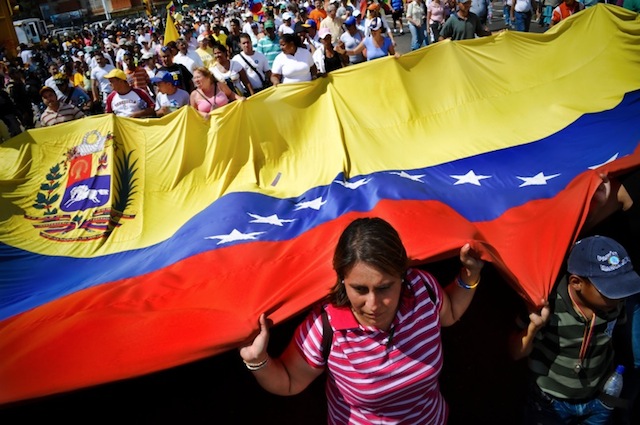
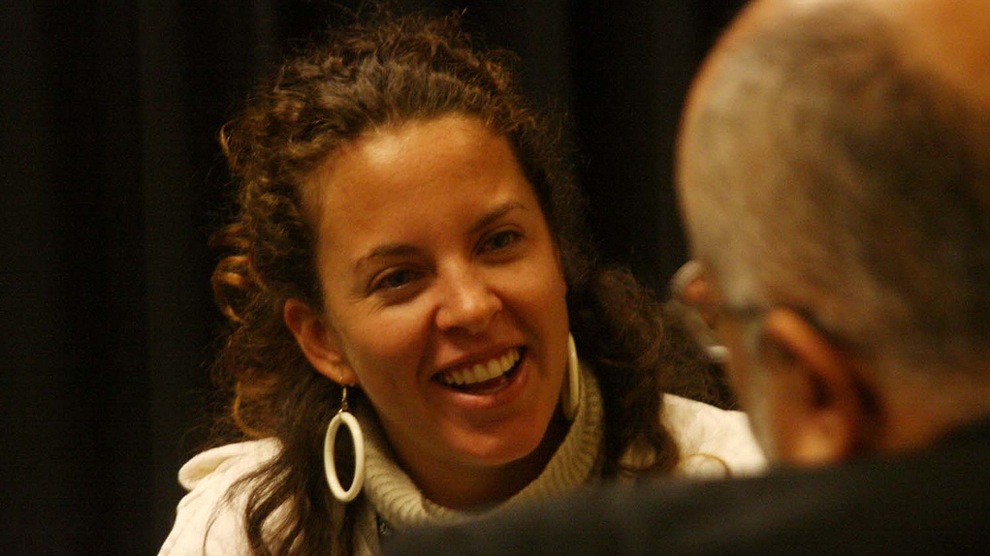
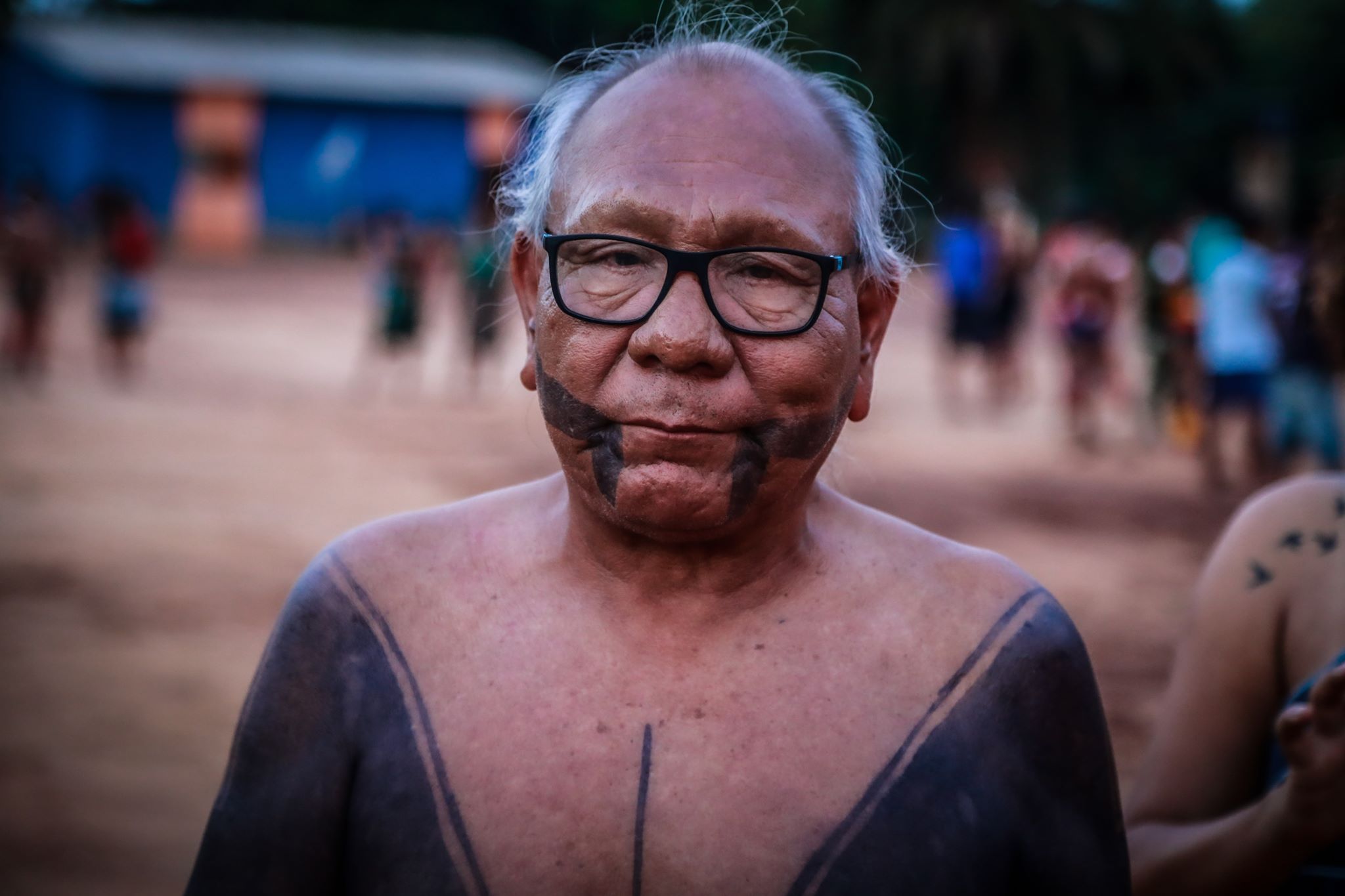
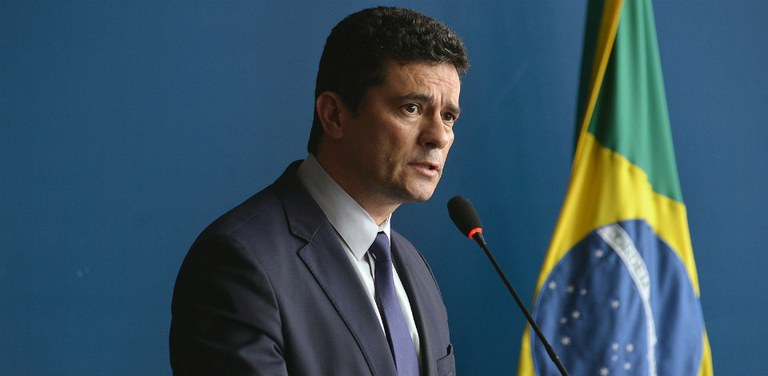
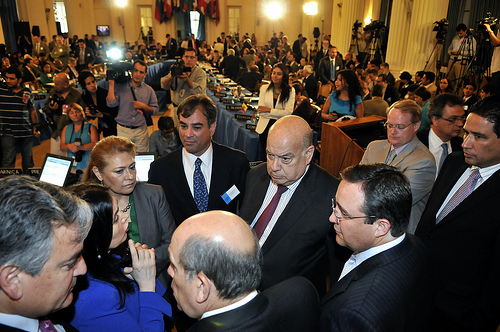

1 Comment
[…] election on June 5, the race is still too close to call. Get to know conservative candidate Keiko Fujimori in this interview by Paul Alonso, translated by the Latin America News Dispatch. (If you missed it, also check out Paul’s […]
Comments are closed.